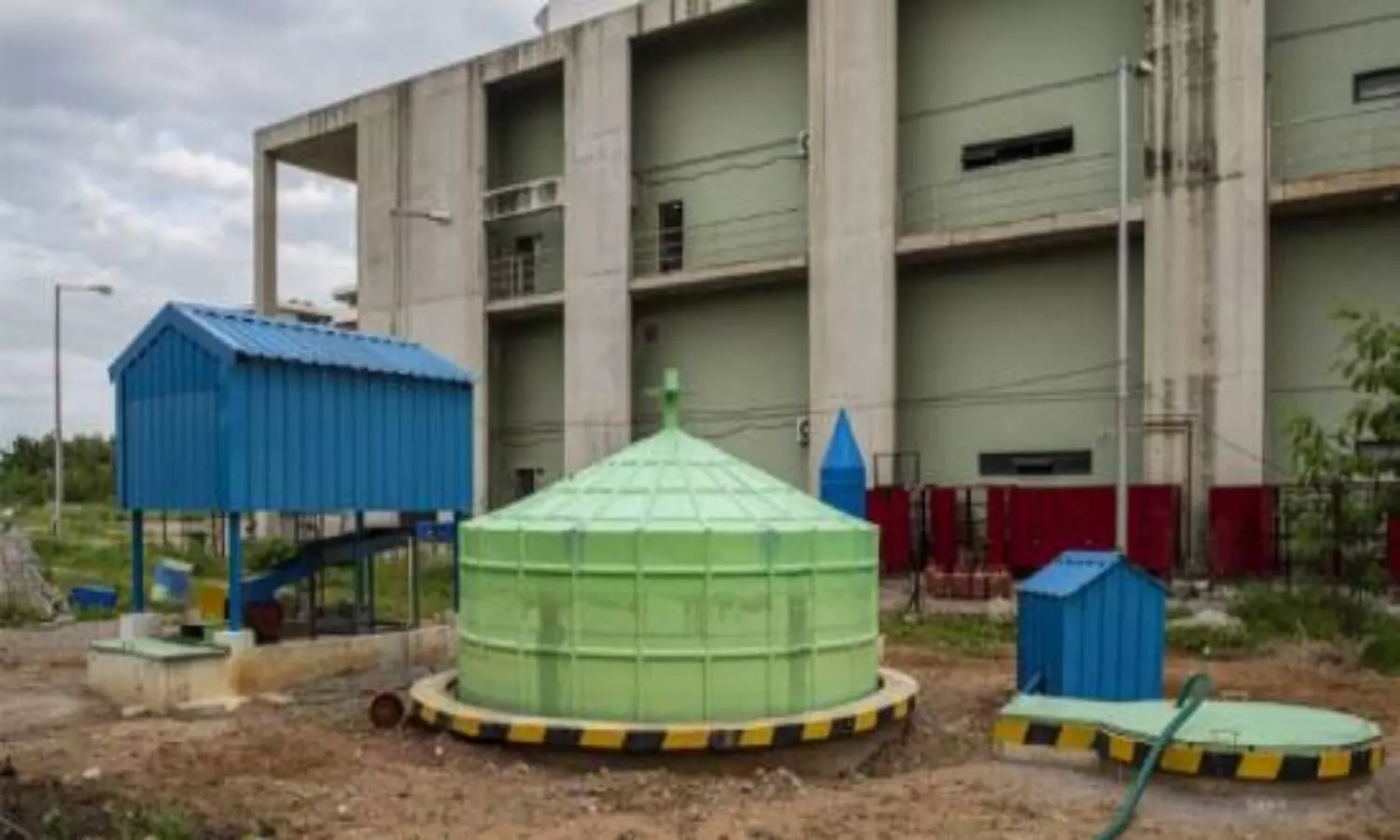Telangana reports 623 fresh COVID cases, three new deaths on Thursday
The Indian Institute of Technology (IIT) Hyderabad has set up a comprehensive waste management system. The campus already has a functional sewage treatment plant based on membrane bioreactor technology.
By Newsmeter Network
Hyderabad: The Indian Institute of Technology (IIT) Hyderabad has set up a comprehensive waste management system. The campus already has a functional sewage treatment plant based on membrane bioreactor technology.
The solid waste generated in the IIT Hyderabad campus is separated into dry and wet categories. Wet waste (food waste, vegetable peelings, etc. which are readily biodegradable) generated in hostel mess, is shredded and fed into a biogas digester. The generated biogas is used in the students' dining facility. The wet waste from the residential areas is sent to the vermicompost facility at the RRP and the compost is used for gardening purposes.
The institute said it is working towards creating a greener and cleaner campus. From banning use of paper cups, single-use plastic water bottles, replacing RO water purifiers with UV water purifiers, door-to-door waste collection, bio-digestor, and growing more than 15,000 trees in the last two years, IIT Hyderabad has significantly reduced its carbon footprint.
"It is a sheer pleasure to see the campus becoming greener. IIT Hyderabad always has a keen interest to serve society in the best possible way and it starts from the campus where we spend 24 hours a day. The culture of a clean campus will not only make IIT Hyderabad a better place to live, but when students leave the campus, this culture will develop wherever they go. As a human race, it is our duty towards nature, to keep it intact for the future generation. RRP is one such small step in this direction," said Prof. B.S Murty, the director of IIT Hyderabad.
The campus has a door-to-door waste collection mechanism with clear segregation at the residences into wet and dry waste. The waste is brought to the RRP using a battery-operated collection vehicle. At RRP, the dry fraction is further segregated into individual components, while the wet waste is sent to the compost facility. The dry waste is segregated at the RRP facility into individual components. The compacted waste is temporarily stored in RRP and disposed of by external agencies.
Vermicomposting shed houses pre-digestion bins, composting bins, and a sieving and storage room. The recyclable waste segregation and storage room have a segregation area with bins for different types of waste and a storage area.
All biodegradable wastes are moved to the pits/windrow platform for composting. The biodegradable wastes are processed using microbial and vermi-composting techniques. Once processed, the compost is passed through a sieving machine to remove foreign particles and bigger chunks of waste. The compost is then stored in the compost storage room and later used as fertilizer.